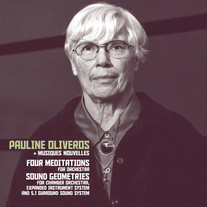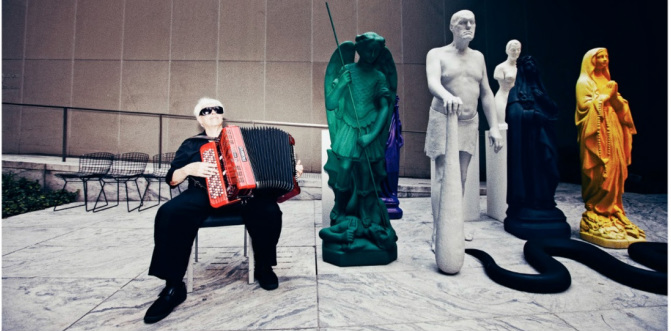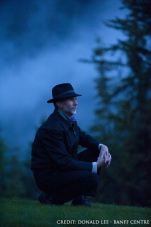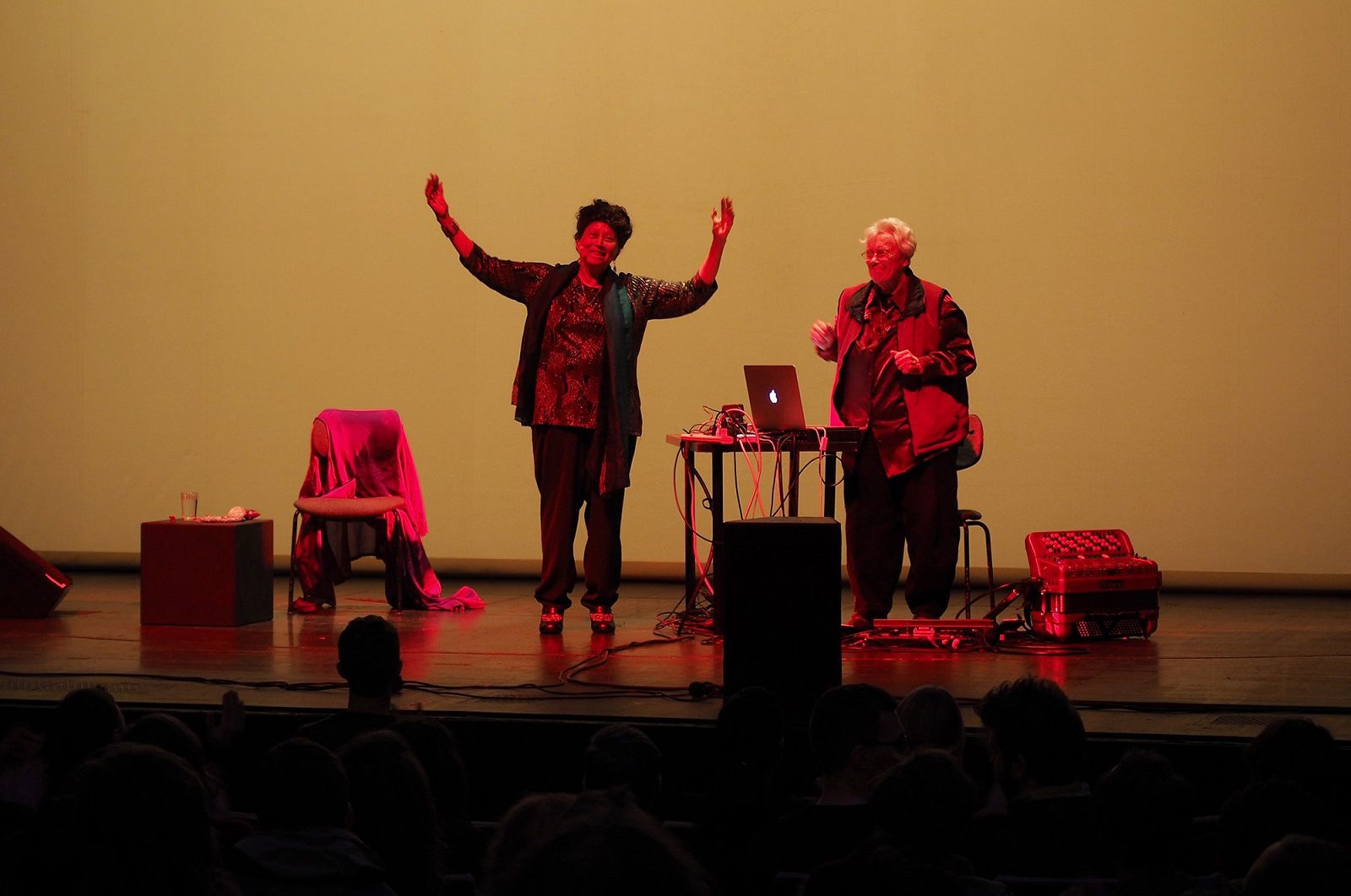A Message from DAVID FELTON
(Former President of Deep Listening Institute, Ltd)
DEAR FRIENDS OF PAULINE OLIVEROS AND DEEP LISTENING®:
Even though composer Pauline Oliveros left the material plane two years
ago this Thanksgiving, her pioneering work continues to
flourish as if she were still running the show. And maybe she
is. During the
years
before she passed, Oliveros took steps to build a vibrant
community and educational system to carry on her
legacy, music and practice of Deep Listening at events around
the world. On August 3, 2018, the city of Kingston unveiled a
“Deep Listening Plaza in Honor of Pauline Oliveros”
Read the entire Press Release


(1932 - 2016)
Photo by IONE
- by Claire-Louise Bennett - Feb. 9, 2017

An early electronic musician, Pauline Oliveros made recordings that blend seamlessly into their sonic surroundings.
https://www.nytimes.com/
Listening for Pauline (In Memoriam: Pauline Oliveros 1932–2016)
- Walker Art Center
blogs.walkerart.org/performingarts/2016/12/08/listening-for-pauline-in-memoriam-pauline-oliveros-1934-2016/
Pauline Oliveros + Musiques Nouvelles: Four Meditations / Sound Geometries - Chain DLK,
by Vito Camarretta
chaindlk.com/reviews/?id=9550
Remembering Pauline Oliveros - CBC Music
cbcmusic.ca/posts/17728/remembering-pauline-oliveros
 Pauline Oliveros, Composer Who Championed ‘Deep Listening,’ Dies at 84
Pauline Oliveros, a composer whose life’s work aspired to enhance sensory perception through what she called “deep listening,” died on Thursday at her home in Kingston,
N.Y. She was 84.
Pauline Oliveros, Composer Who Championed ‘Deep Listening,’ Dies at 84
Pauline Oliveros, a composer whose life’s work aspired to enhance sensory perception through what she called “deep listening,” died on Thursday at her home in Kingston,
N.Y. She was 84. Her death was confirmed by her spouse, Carole Ione Lewis, a writer and performance artist known as Ione. November 28, 2016 - By STEVE SMITH, New York Times
3 Big Shows for New Music in New York
New York Times article by ZACHARY WOOLFE, NOV. 2, 2016
Continue reading the main story
 Four Mediations / Sound Geometrics
Four Mediations / Sound Geometrics"Pauline Oliveros is a virtuoso at creating environments for musicians to explore. The legendary 84-year old composer, accordionist, and electronic pioneer is perhaps best known for her tape experiments from the ’60s, but her musical scores are just as innovative. Most of them contain text rather than musical notation, and eschew hard-and-fast directions in favor of poetic guidelines to be interpreted. In other words, she doesn’t tell people what to play, but how to play—and just as importantly, how to listen. Given this creative freedom, her collaborators often respond with something that’s less like music to passively listen to than spaces your mind can enter and probe." Marc Masters, Pitchfork.com
Accordions Rising
 Pauline Oliveros - Featured Artist on Accordions Rising a documentary feature film about the
resurgence of interest in accordion music over the last 30-40 years.
Pauline Oliveros - Featured Artist on Accordions Rising a documentary feature film about the
resurgence of interest in accordion music over the last 30-40 years.AccordionRising.com
A giant of the avant-garde shows us how to listen.
Pauline Oliveros is one of modern music's most important figures, precisely because her work transcends music itself. While many people have heard of her contemporaries like Steve Reich and Philip Glass, Oliveros' five decades of work is so wide-reaching that popular culture has barely kept up. She was a founding member of the San Francisco Tape Music Center in the '60s, and devised a musical concept called Deep Listening, which stemmed from a trip into a giant underground cistern with a 45-second reverb. Read more from RA Exchange...
Edited by Daniel Weintraub

"Pauline the Mighty" --- living sculpture in MoMA's Garden!
The New Yorker - Aug 5, 2013

Biennial Performance • NY Times Article •

https://www.ministryofmaat.org/ and https://popandmom.org/
Celebrate With A DownloadEach
month we'll celebrate with a free download
of Pauline's work and a conversation with other musicians. Free Download of the Month: Moving Changes Changing Moves (2001) is a solo improvisation performed by Pauline with a Titano acoustic free bass accordion tuned in Just Intonation. Performed at Deep Listening Space, Kingston NY. Click here to download Or listen below! Oliveros" data-track="Moving Changes |
Shared favorite memories
Read shared favorite memories of Pauline, her
compositions and performances and birthday wishes
here! |
Conversation Between Musicians
Composers
Anne
LeBaron and Pauline Oliveros Discuss Music and
Activism, the Formation of “Occupy Oceans,” Future Tools for
Composing, and Unified Theories of Collaboration.
Read it here. 
John Luther Adams
and Pauline Oliveros
Discuss Process, Buck Rogers, Explorations in How Listening Happens, and Rediscovering Polyphony via the People’s Microphone of Occupy. Read it here. |



